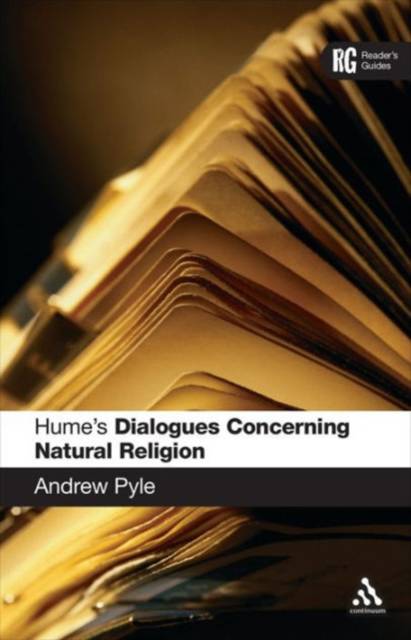
- Afhalen na 1 uur in een winkel met voorraad
- Gratis thuislevering in België vanaf € 30
- Ruim aanbod met 7 miljoen producten
- Afhalen na 1 uur in een winkel met voorraad
- Gratis thuislevering in België vanaf € 30
- Ruim aanbod met 7 miljoen producten
Zoeken
Omschrijving
Hume's Dialogues provide a classic exposition and critique of the famous 'Argument to Design', the attempt to prove the existence and properties of a designing intelligence or God from the phenomena of Nature, notably the functional contrivance of the parts of plants and animals. As such, it raises questions of central interest in both philosphy and theology. Philosophers will be concerned with the implications of strict empiricism for our claims to know anything of the existence and properties of God, and with it the associated threat of scepticism. Theologians will be concerned about the possibility of natural theology and the problematic relation between natural theology and the claims of revealed religions such as Christianity. This book will follow the layout of the Reader's Guide Series In 'Context', Pyle will explain the philosophical and theological background against which the book was written, including what is meant by 'natural' religion introduce hte reader to Enlightenment views on religion. 'Overview of Themes' will address the question of why Hume chose to write in dialogue form, sketch out the views of the three characters and introduce the questions they address. The 'Reading the Text' section will take take the 12 parts of Dialogues in turn and guide the reader throuhg the issues thrown up. Discussion points and questions will focus thinking and encourage the reader to engage with the primary text. 'Reception and Influence' will include discussion of Hume's influence on Kant and hte debates about Darwinism.
Specificaties
Betrokkenen
- Auteur(s):
- Uitgeverij:
Inhoud
- Aantal bladzijden:
- 164
- Taal:
- Engels
- Reeks:
Eigenschappen
- Productcode (EAN):
- 9780826475688
- Verschijningsdatum:
- 12/12/2006
- Uitvoering:
- Paperback
- Formaat:
- Trade paperback (VS)
- Afmetingen:
- 150 mm x 207 mm
- Gewicht:
- 222 g

Alleen bij Standaard Boekhandel
+ 128 punten op je klantenkaart van Standaard Boekhandel
Beoordelingen
We publiceren alleen reviews die voldoen aan de voorwaarden voor reviews. Bekijk onze voorwaarden voor reviews.








